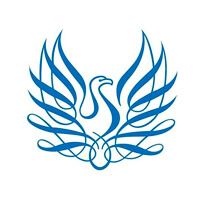fees waived
Computer Systems Engineering, MEng (Hons)
Coventry University, United Kingdom
Ranking in UK
Information Systems and Management
Information Technology and Systems
Computer Science
Costs
food & rent S$17.1k / year
Entry requirements
Scholarships
Unlimited quantity
Unlimited quantity
Unlimited quantity
Limited quantity
Information
Code
Intakes
Website (External)
Programmes
Information
Duration
2030
Computer Systems Engineering is a contemporary program designed to equip students with the knowledge and skills for designing and building hardware and software systems. It bridges electronics and computer science, emphasizing creative thinking and preparation for challenges in evolving technologies like IoT, smart cities, autonomous vehicles, and green innovations. The curriculum covers advanced hardware design using FPGAs and microcontrollers, alongside software topics such as operating systems and security.The course features a common first year shared with related programs, followed by modules on embedded systems, networking, and individual projects. An optional placement year offers practical experience. Assessment includes examinations, essays, projects, and presentations to evaluate student progress effectively.
This course has a common first year. The common first year enables you to work alongside students doing similar courses to you, to widen your knowledge and exposure to other subject areas and professions. You will have the opportunity to collaborate with other students, so you can share your insights and experience which will help you to develop and learn. If you discover an interest in a specific subject you have studied, upon successful completion of your first year, you could swap degrees with another course in your common first year (subject to meeting progression requirements). Common first year courses: Electrical and Electronic Engineering MEng/BEng (Hons) Electronics and Communication Engineering MEng/BEng (Hons) Year One Modules Engineering Mathematics Electrical and Electronic Engineering Principles Engineering Design Analogue and Digital Devices Electronic Systems in Action Introduction to Programming Year Two In your second year, more advanced electronics and system design topics will be covered in the electronic modules. This will include electronic system design, manufacturing, and testing. Computer operating system and advanced programming topics will be taught where security issues will also be introduced. Communication and networking module will introduce the technologies and protocols used in modern communication system. Modules Analogue and Digital Systems Object Oriented Programming Operating Systems, Security and Networks Embedded System Design & Development Manufacture of Electronic Systems Communication and Networking Placement Year There’s no better way to find out what you love doing than trying it out for yourself, which is why a work placement* can often be beneficial. Work placements usually occur between your second and final year of study. They’re a great way to help you explore your potential career path and gain valuable work experience, whilst developing transferable skills for the future. If you choose to do a work placement year, you will pay a reduced tuition fee* of £1,250. For more information, please go to the fees and funding section. During this time, you will receive guidance from your employer or partner institution, along with your assigned academic mentor who will ensure you have the support you need to complete your placement. Third Year In the third year, you will continue your studies in advanced hardware and software design, but with a focus on individual/group projects in which you will perform a detailed research or design study into a technical aspect from the course with the help of an experienced supervisor. In the hardware design areas topics such as FPGA based system design and system on Chip design will be covered whereas in the software area advanced security and machine learning topics will be the key focus. Modules Security Hardware Realisation of a Computer System Individual/Group-based Project Preparation Individual/Group-based Project Realisation System on Chip Design Optional modules (choose one of the following) Machine Learning and Related Applications VLSI Design Additional Year In this additional year, more advanced topics related to computer engineering will be investigated which is beyond the scope of undergraduate study. More advanced design techniques including embedded system and digital system design approaches will be examined. You will also undertake a group-based industrial project relevant to the modern engineering problems. Please see the website for full details including the list of modules. We regularly review our course content, to make it relevant and current for the benefit of our students. For these reasons, course modules may be updated. Before accepting any offers, please check the website for the most up to date course content. For full module details please check the course page on the Coventry University website. *For further information please check the course page on the Coventry University website
A local representative of Coventry University in Singapore is available online to assist you with enquiries about this course.

